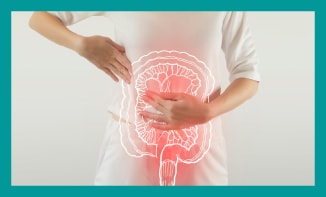Ulcerative Colitis Treatment
 Our Ulcerative Colitis treatment at our Guardian featured clinic addresses the underlying issues and not just the symptoms. Treatment is tailored to meet each patient’s unique needs.
Our Ulcerative Colitis treatment at our Guardian featured clinic addresses the underlying issues and not just the symptoms. Treatment is tailored to meet each patient’s unique needs.
Ulcerative Colitis (UC) is a very uncomfortable and debilitating condition. It affects the colon and rectum and usually involves just the innermost lining (mucosa) of the gut wall. It presents as continuous areas of inflammation and ulceration, with no segments of normal tissue. During the 20th Century, there was a significant increase in Ulcerative Colitis and it currently affects between 1 and 2 million people in the America. The figure for the UK has been estimated at 243 per 100,000. There is compelling evidence that environmental factors are far more important than genetic factors in Ulcerative Colitis. The most common symptoms of ulcerative colitis are abdominal pain and bloody diarrhoea. Patients also may experience anaemia, fatigue, weight loss, loss of appetite, rectal bleeding, skin lesions and joint pain.
About 50% of the people diagnosed with ulcerative colitis have mild symptoms. Others people suffer frequent fevers, bloody diarrhoea, nausea, and severe abdominal cramps. Ulcerative colitis may also cause problems such as arthritis, inflammation of the eye, liver disease, and osteoporosis.
In clinical trials, it was noted that a non pharmaceutical approach to Ulcerative Colitis provided beneficial effects to patients. In fact, those who received non pharmaceutical treatment, had a remission rate of 70% compared to 40% for pharmaceutical treatment.
At Harley Street IBS & Autoimmune Clinic we treat the underlying cause and not just the symptoms. We see many patients, who come to us having relapsed after coming off steroids – in many cases several times – because the underlying issues fuelling the condition have not been diagnosed or treated.
Treatment at Harley Street IBS & Autoimmune Clinic includes addressing the imbalance of the gut flora (gut dybiosis), the immune dysregulation, the inflammation and the diet. Diagnostic medical tests are run in order to tailor the ulcerative colitis treatment and to meet the unique needs of the patient as everyone’s presentation of this condition is different and unique to them. This approach gets the best results – far better than a one-size-fits-all approach.
“Thank you for everything you have done for me. It has made an incredible difference to my health. I am so much happier now and am infinitely grateful to you for your guidance, understanding, kindness and treatment. You have also helped everyone in my family and brought us closer together. Many thanks.” – Shreena, London
Patients usually progress well on our treatment for ulcerative colitis, providing they are diligent with their diet. It has usually taken many years for this condition to slowly develop and so it is not unusual for treatment to take some time to rebalance the body and help restore health. However, some progress is usually seen early on in the treatment, depending on the severity of the patient’s condition.
We also diagnose allergies, which are often associated with Ulcerative Colitis.
References
If you would like this approach to Ulcerative Colitis treatment
Contact Deborah’s Medical Secretary for an appointment